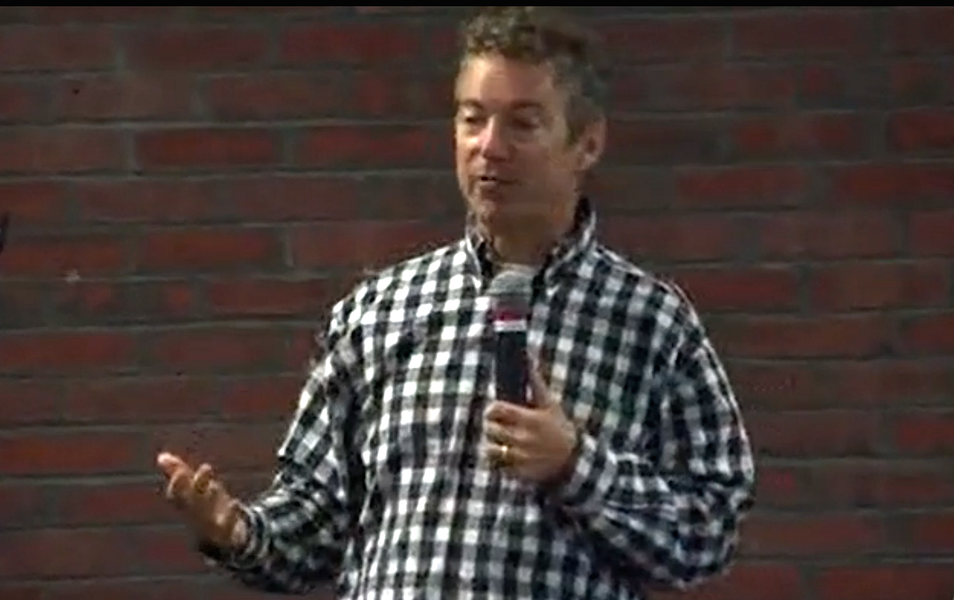Rand Paul wants you to believe that Ebola is 'incredibly contagious'


A free daily email with the biggest news stories of the day – and the best features from TheWeek.com
You are now subscribed
Your newsletter sign-up was successful
Two of the nearly 100 nurses and medical staff who were in close contact with dying Ebola patient Thomas Duncan in Dallas have tested positive for the virus, so far. But on Thursday, Sen. Rand Paul (R-Ky.) told a group of students at New Hampshire's Plymouth State University that Ebola is "incredibly contagious," that you can spread it from 3 feet away, and that "if someone has Ebola at a cocktail party they're contagious and you can catch it from them." The White House "should be honest about that."
Paul is an ophthalmologist, but infections disease experts disagree with his diagnosis. Paul's "3 feet" statement is based on CDC guidelines for health-care workers dealing with symptomatic (thus highly contagious) patients — it considers prolonged periods within up to 3 feet of a patient without protective gear to be "low-risk" contact.
The CDC, World Health Organization, and other Ebola experts say the only way to catch Ebola is through direct contact with blood, vomit, feces, or other body fluids. "The virus has not become an airborne transmitted disease since it was first identified in the 1970s," says CBS News medical correspondent Dr. Jon LaPook.
The Week
Escape your echo chamber. Get the facts behind the news, plus analysis from multiple perspectives.

Sign up for The Week's Free Newsletters
From our morning news briefing to a weekly Good News Newsletter, get the best of The Week delivered directly to your inbox.
From our morning news briefing to a weekly Good News Newsletter, get the best of The Week delivered directly to your inbox.
Paul in his speech said that U.S. health officials shouldn't make Ebola sound like AIDS: "No one's going to cough on you and you're going to get AIDS." Dr. Paul Offit, chief of the infectious diseases division at the Children's Hospital of Philadelphia, does see one similarity between Ebola and AIDS, though. "This is panic," he tells The New York Times:
This reminds me of the early days of AIDS, when people were afraid to walk into a grocery store and pick up a piece of fruit because they didn't know who'd touched it. This doesn't follow the epidemiology of the disease. This isn't flu or smallpox. It's not spread by droplet transmission. As long as nobody kissed the person on the plane, they're safe. [Offit, via New York Times]
Paul and all public health officials would agree that if you kissed someone infected with Ebola, you are in fact at high risk and should act accordingly.
A free daily email with the biggest news stories of the day – and the best features from TheWeek.com
Peter has worked as a news and culture writer and editor at The Week since the site's launch in 2008. He covers politics, world affairs, religion and cultural currents. His journalism career began as a copy editor at a financial newswire and has included editorial positions at The New York Times Magazine, Facts on File, and Oregon State University.
